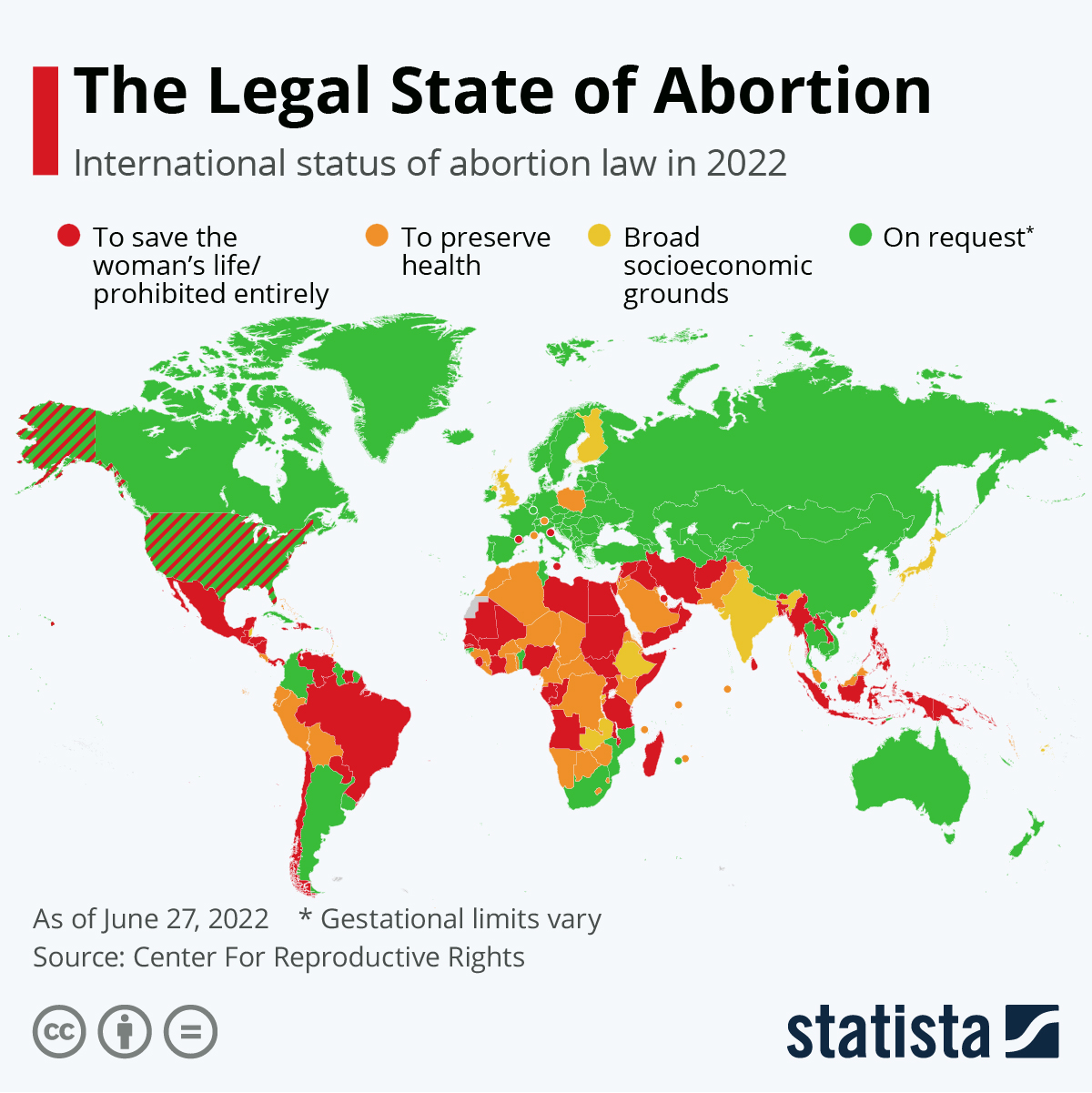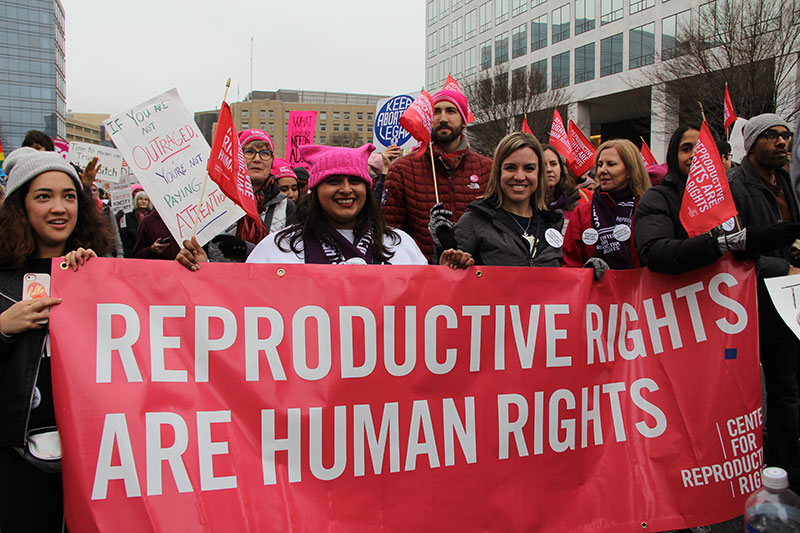According to the World Health Organization, 45% of all abortions worldwide are unsafe. More than 22,000 women die from these unsafe procedures every year. As it often happens, women from poor, rural, and marginalized communities suffer disproportionately. The fact is, banning abortions do not stop them from happening, nor do restrictive abortion laws. It just drives them underground. Currently, 24 countries around the world have banned abortions. While the laws may vary, abortion is legal throughout the rest of the world. Women’s reproductive rights are human rights. So why do so many women consider unsafe abortion to be their only option?

ABORTION LAWS AROUND THE WORLD
INDIA
In India, you are only allowed to get an abortion if you are under 20 weeks pregnant. However, this is subject to various conditions, including the approval of a doctor. You may need approval from two doctors if you are between 12 and 20 weeks. Another condition allows mothers whose pregnancy is harmful to their physical and/or mental health to get an abortion. As well as to those with a high chance that their child will suffer from mental or physical disabilities that will leave him or her handicapped.
NEW ZEALAND
Up until March 2020, New Zealand considered abortion a crime. However, it has since been decriminalized. Women are now free to choose an abortion up to 20 weeks into their pregnancy.
PHILIPPINES
Abortion is illegal under any circumstances in the Philippines. Yet, about 1,000 Filipino women die each year as a result of complications following unsafe abortions.
AUSTRALIA
In March this year, South Australia became the last jurisdiction to decriminalize abortions. While gestational limitations vary from state to state (16-24 weeks), it is legal to have an abortion in Australia.
IRELAND
As recently as 2010, women were leaving Ireland to seek abortions in UK clinics. However, in 2018, Irish voters chose to legalize abortions in a historic referendum. Ireland removed the 8th amendment – which gave a pregnant woman and a foetus the same legal rights. Since withdrawing this amendment, free, safe and legal abortions are available upon request for women who are up to 12 weeks pregnant.
TEXAS, U.S.A.
In Texas, a law called the Senate Bill 8 gives citizens the right to sue anyone who assists or has assisted with an abortion after a 6 week gestation period. It is known as the “heartbeat bill”. For one can typically hear a “heartbeat” at around the 6-week mark. This bill does not allow for any exceptions. Including medical emergencies or pregnancies as a result of rape or incest.
ABORTION LAWS: IT’S COMPLICATED
The legal restrictions on abortion vary. It is true that most countries appear to have progressive abortion laws in place. Yet, the reality is that women still face challenges when it comes to getting safe abortions. The social stigma surrounding abortions can lead to the harassment of women or even prevent them from seeking help. In India, unsafe abortions are the third leading cause of maternal deaths. Still, 80% of Indian women don’t know that abortions at up to 20 weeks can be legal.
Conscientious objection is another obstacle to safe terminations. Many countries allow doctors to refuse abortion services if they are morally or religiously opposed to it. However, this unfairly impacts women. For example, if a doctor was religiously opposed to blood transfusions, they do not have the right to refuse a patient that procedure. In Italy and Poland, as many as 70% of health care professionals register as conscientious objectors. GPs who cite conscientious objections to abortions may be required to provide the patient with a referral to an accessible and willing healthcare provider. But, this practice could hinder a woman’s timely and efficient access to appropriate services. This is especially true in rural and remote communities or other areas that are not well serviced.

TAKE ACTION
Women have abortions for various valid reasons. They may not be financially prepared, or the pregnancy was unplanned. The pregnancy may come as a result of rape or incest. The mother may be in an abusive relationship, or health issues may be a concern. Whatever it may be, there are many reasons a woman may seek to terminate her pregnancy. Laws restricting or banning abortions will not stop women from trying to end their pregnancies. One study showed that if abortions were banned across the U.S., pregnancy-related deaths would increase by 21%. According to the International Women’s Health Coalition, 1 out of 4 pregnancies ends in abortion. Above all, reproductive rights are a human right. Abortions need to be safe, legal, and accessible.

- If you are able to, donate to your local abortion clinic or to an organization fighting to protect women’s reproductive health and rights.
- Be a voice for the pro-choice movement by sharing your support on social media. You can find links to download supportive tweets and content here.
- Be an engaged citizen. Oppose anti-choice judicial appointments. Sign petitions. Educate yourself.
- Volunteer virtually.
Here at THRIVE, we are committed to helping ensure the future prosperity of all humanity. Join THRIVE Project to help inspire change and action that works to secure a flourishing future for all.























